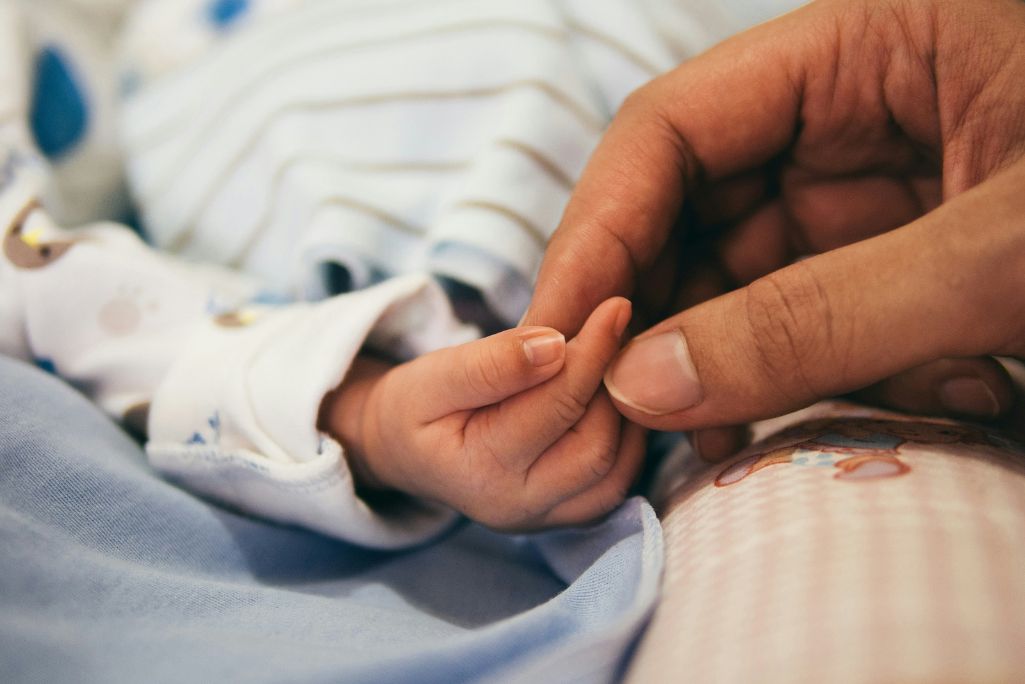Several years ago, while visiting my uncle, I was able to hold the Purple Heart that my grandfather was awarded during WWII. He was injured by enemy fire on January 15, 1944, during the “Battle of the Bulge.”
I had done research earlier and found that WWII Purple Hearts sold for about $800.00 online. As I explained that to my uncle, he became a little tense and said, “Bartley, I would never sell this Purple Heart. I wouldn’t care if they offered me all the money in the world, I still wouldn’t sell it!”
Driving home later that day I reflected on our conversation, specifically why that Purple Heart was so valuable to him. As I thought through our conversation, I realized it was not the quality of metal that made it valuable to my uncle, rather it was because the metal represented where he came from and the man he called father.
This month, as we recognize the sanctity of human life, we affirm that every life (born or unborn, young or old, healthy or sick) is valuable and sacred. Certainly there are numerous reasons why we affirm every life is sacred, but allow me to focus on one.
Using the analogy of my grandfather’s Purple Heart, I believe every life is valuable because it represents where we came from and to whom we belong. In other words, as we think about the sacredness of life, we believe every person – born or unborn – is invaluable because we are created in the image of God.
Unlike other aspects of God’s creation, humanity was created in God’s likeness. Genesis 1:26-27 tell us, “Then God said, ’Let us make man in our image, after our likeness. And let them have dominion over the fish of the sea and over the birds of the heavens and over the livestock and over all the earth and over every creeping thing that creeps on the earth.’ So God created man in his own image, in the image of God he created him; male and female he created them” (ESV).
Tragically, not everyone believes every life is sacred. Indeed, many advance the view that there is no innate value in being human outside of what one can produce for the betterment of society.
The idea that every life is sacred simply because that person was created in the image of God seems absurd to them. However, I want to argue that it is not absurd to see every life as precious. I want us to feel like my uncle concerning his grandfather’s Purple Heart. I want us to treasure life as an irreplaceable gift that constantly reminds us of the One who created it.
There are two dominant worldviews concerning the origin of humanity in our world today. The first view can be described as biblical creationism, which is the belief that God created humanity as given in scripture.
The second view, the theory of evolution, generally claims that humanity is a product of natural selection and has evolved to its current state. The implications from each of these views often impacts how people see the sanctity of human life.
In the latter view, nobody planned for our existence. Instead, we are a part of a natural process that ultimately has no purpose and no destiny beyond this life.
In the biblical worldview, the God of the universe created you for a purpose and designed you in His image. Genesis 2:7 states, “then the Lord God formed the man of dust from the ground and breathed into his nostrils the breath of life, and the man became a living creature.” The word “formed” in this verse has the meaning of fashioning or shaping for a purpose. When combined with Genesis 1:26-27, we see that God created humanity with a purpose in mind.
David wrote in Psalm 129:14 that we are fearfully and wonderfully made. Just think about the human body for a moment. In their article “10 Amazing Facts About the Human Body,” the Orthopaedic Specialty Group said there are between 60,000 to 100,000 miles of blood vessels in the human body. If laid end to end, these vessels could wrap around the earth three times.
Consider that every second your body produces 25 million new cells. That’s more cells being produced in 15 seconds in your body than there are people in the United States.
In his article “What is the Memory Capacity of the Human Brain?,” Paul Reber, professor of psychology at Northwestern University, said the brain has a memory capacity of about 2.5 petabytes.
Reber continued, “For comparison, if your brain worked like a digital video recorder in a television, 2.5 petabytes would be enough to hold three million hours of TV shows. You would have to leave the TV running continuously for more than 300 years to use up all that storage.”
Simply put, the human body is amazing.
In fact, it is difficult to look at the human body and believe we are just a product of a natural process. On the other hand, scripture is clear that we are all uniquely designed in the image of God for His purposes.
In essence, what makes us different from other aspects of God’s creation is that we have a special connection to God. We were created in His likeness. We represent God as His unique creation on earth. We are sacred because of who we belong to and the purpose He has for us.
I am reminded of my uncle’s passion for that Purple Heart. He treasured it because it belonged to his father. When I think of our passion for the sanctity of human life, how much more should we treasure every life because it belongs to our heavenly Father?
(EDITOR’S NOTE – Bartley Wooten is pastor of Beulaville Baptist Church.)


